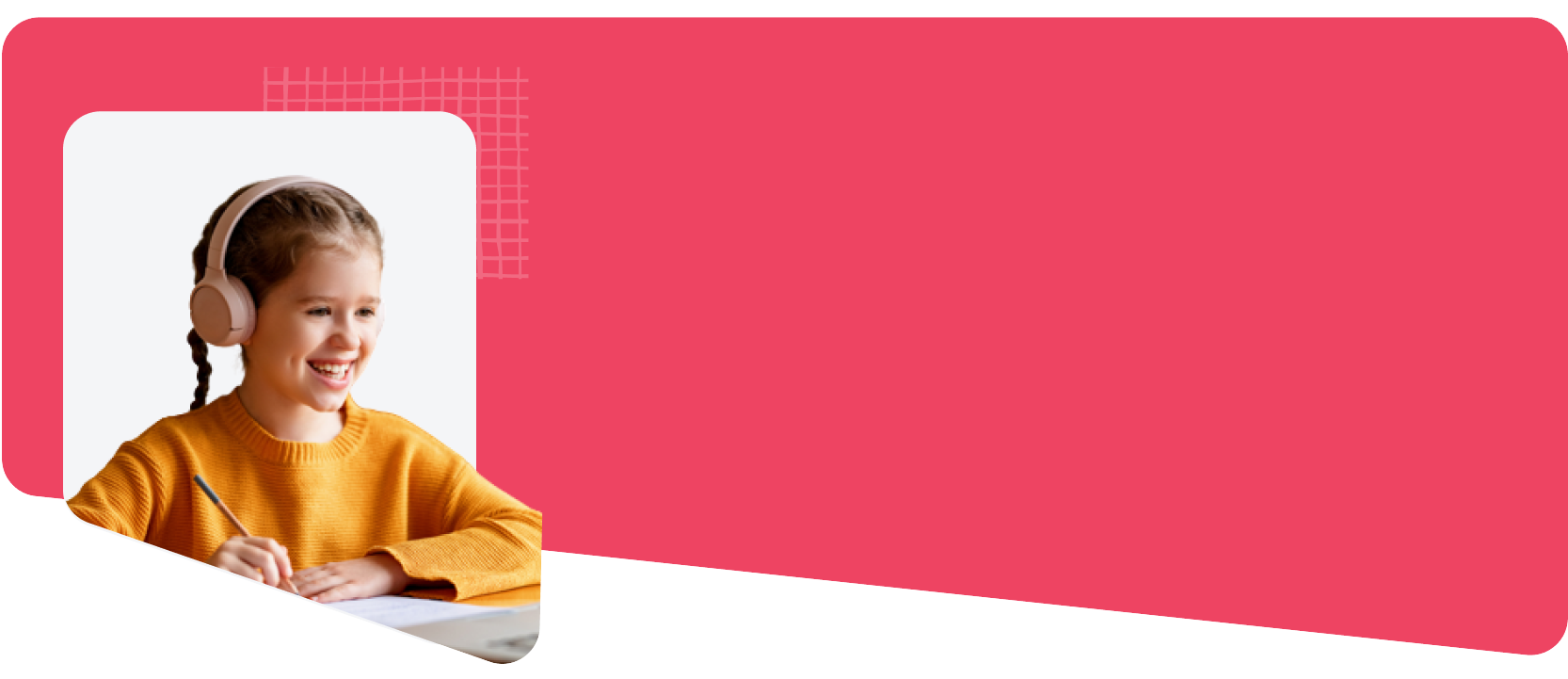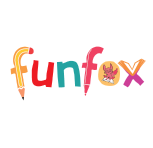Around 22% of children entering school in Australia experience expressive language delays, and roughly 16% struggle with understanding language. These early communication hurdles can have a lasting impact if not addressed. Speech therapy plays a vital role in closing that gap, and one highly effective technique is focusing on multi‑syllabic words, especially three‑syllable words.
Practising three‑syllable words strengthens articulation, builds phonological awareness, and improves overall language comprehension. In this blog, we’ll explore a range of three‑syllable words ideal for practice, along with practical strategies to incorporate into speech therapy sessions to help children build clearer, more confident communication skills.
Why 3-Syllable Words Matter in Speech Therapy
Focusing on 3-syllable words in speech therapy helps children address common speech challenges such as articulation errors and phonological processes. Words with three syllables provide an ideal level of complexity for those advancing in their speech and language development. By working on these words, you can support children in mastering syllable segmentation, pronunciation, and stress patterns, which are key components of fluent speech.
Now that we understand the importance of 3-syllable words, let’s take a closer look at some examples of these words that can be used in your sessions.
Also read: How Hard is English to Learn: Understanding What Makes it Difficult
A List of 3-Syllable Words for Speech Therapy Practice
Here is an extensive list of 3-syllable words, perfect for practicing in speech therapy. These words are not only common and easy to understand, but they are also engaging, which helps students remain motivated and improve their communication skills.
|
Word |
Type |
Example Sentence |
|
Ad‑ven‑ture |
Noun |
We went on an adventure this summer. |
|
An‑i‑mal |
Noun |
The animal is resting in its cage. |
|
Choc‑o‑late |
Noun |
She gave me a chocolate bar. |
|
Com‑pu‑ter |
Noun |
The computer is very fast. |
|
Di‑no‑saur |
Noun |
The dinosaur lived long ago. |
|
El‑e‑phant |
Noun |
The elephant drank from the river. |
|
Hos‑pi‑tal |
Noun |
He was taken to the hospital. |
|
Im‑por‑tant |
Adjective |
It’s important to be honest. |
|
Tel‑e‑phone |
Noun |
The telephone rang late at night. |
|
But‑ter‑fly |
Noun |
The butterfly landed on a flower. |
|
Dis‑cov‑ery |
Noun |
It was an amazing discovery. |
|
To‑mor‑row |
Adverb |
We can meet tomorrow morning. |
|
Spa‑ghet‑ti |
Noun |
Spaghetti is her favorite pasta. |
|
Cal‑en‑dar |
Noun |
Check the calendar for appointments. |
|
Oc‑ta‑gon |
Noun |
An octagon has eight sides. |
|
Fan‑tas‑tic |
Adjective |
The party was fan‑tas‑tic! |
|
Fam‑i‑ly |
Noun |
My family is very supportive. |
|
En‑er‑gy |
Noun |
He has a lot of energy. |
|
Har‑mo‑ny |
Noun |
They sang in harmony. |
|
Gal‑ax‑y |
Noun |
The galaxy is full of stars. |
|
At‑ten‑tion |
Noun |
The teacher gave him attention. |
|
Po‑et‑ry |
Noun |
She loves to write poetry. |
|
In‑no‑cent |
Adjective |
The child was innocent. |
|
Gen‑er‑al |
Adjective |
This is a general rule. |
|
Dif‑fi‑cult |
Adjective |
The test was very difficult. |
|
El‑e‑va‑tor |
Noun |
We took the elevator to the top floor. |
|
Mel‑o‑dy |
Noun |
The song had a beautiful melody. |
|
Cin‑e‑ma |
Noun |
We went to the cinema last night. |
|
Af‑ter‑noon |
Noun |
Let’s meet in the afternoon. |
|
Sat‑is‑fy |
Verb |
This answer will satisfy your doubt. |
|
Min‑i‑mum |
Noun |
We need a minimum of ten people. |
|
Crit‑i‑cal |
Adjective |
The patient is in critical condition. |
|
Par‑a‑dise |
Noun |
This place feels like paradise. |
|
Dan‑ger‑ous |
Adjective |
It’s dangerous to drive too fast. |
|
Beau‑ti‑ful |
Adjective |
The view is beautiful. |
|
U‑ni‑form |
Noun |
He wore a uniform to school. |
|
In‑ter‑net |
Noun |
The internet is very useful. |
|
Min‑is‑ter |
Noun |
The minister gave a speech. |
|
Qual‑i‑ty |
Noun |
We value quality in our work. |
|
In‑ci‑dent |
Noun |
An incident happened yesterday. |
|
Af‑ri‑can |
Adjective |
This is an African sculpture. |
|
Dis‑tance |
Noun |
The distance is too far to walk. |
|
El‑e‑gant |
Adjective |
She wore an el‑e‑gant dress. |
|
Ex‑am‑ple |
Noun |
This is an example of good design. |
|
Li‑ber‑ty |
Noun |
The Statue of Liberty is famous. |
|
De‑liv‑er |
Verb |
They deliver packages quickly. |
|
Po‑pu‑lar |
Adjective |
This song is very popular. |
|
De‑ci‑sion |
Noun |
He made a decision quickly. |
|
Ma‑gi‑cal |
Adjective |
It felt like a magical moment. |
|
Par‑ent‑al |
Adjective |
The parental guide is required. |
This list of 3-syllable words offers a mix of nouns, adjectives, and verbs, which are excellent for targeting articulation, pronunciation, and speech fluency. Incorporating these words into your child’s therapy sessions will help them develop better speech patterns and communicate more effectively. With a solid set of words to start with, it’s important to consider effective strategies that can help integrate these words into your therapy routine.
Effective Strategies to Practice 3-Syllable Words
When working on 3-syllable words in speech therapy, it’s crucial to use strategies that encourage active participation and practice. Below are several approaches that can help children improve their pronunciation and articulation of these words:
1. Word Segmentation
Begin by breaking the 3-syllable words into individual syllables. For example, the word "adventure" can be broken down as "ad-ven-ture." This technique allows children to focus on each syllable, making it easier to pronounce the word in full.
2. Syllable Clapping
Clapping for each syllable can help children recognize how many syllables are in a word. For example, when practicing "butterfly," you can say the word while clapping three times. This physical act enhances the child’s awareness of syllable structure.
3. Interactive Games
Engage children in fun activities such as “Syllable Sorting,” where they categorize objects or pictures based on the number of syllables. You can use the 3-syllable words from the list to make these interactive games and activities more enjoyable.
4. Storytelling
Incorporate 3-syllable words into short stories or sentences. For example, ask the child to create a sentence using the word “elephant” or “computer.” This practice helps reinforce the word’s usage in context, making it easier for the child to remember and use it in everyday speech.
Now that you have the tools to practice these words effectively, let’s explore how using these strategies can build confidence and help children advance in their speech therapy journey.
Bonus read: Fun Persuasive Writing Prompts and Activities for Kids
Tracking Progress in Speech Therapy
Tracking progress in speech therapy is crucial to ensure that the child develops speech skills at the appropriate pace. Here are some ways to effectively monitor progress when practicing 3-syllable words:
-
Recording Sessions: Keep a record of the words the child can pronounce correctly, and track improvements over time.
-
Speech Samples: Regularly collect speech samples during natural conversations to see how the child incorporates the words into their speech.
-
Parent and Teacher Feedback: Encourage feedback from parents and teachers on the child’s use of 3-syllable words outside of therapy sessions.
-
Use of Technology: Tools like speech recognition software or apps can provide real-time feedback on pronunciation.
By monitoring progress, you can make necessary adjustments to your therapy plan, keeping the practice relevant and effective.
Also: Finding an English Tutor in Gold Coast for Kids: The Complete Guide
Tips for Making the Most of 3‑Syllable Words
To help your child gain the most from practicing 3‑syllable words, it’s worth focusing on consistency, variety, and making learning enjoyable. Here are a few ways to support their progress:
-
Revisit Words Regularly: Repetition is key. Incorporate a handful of words from the list into daily conversations or play. The more children hear and use these words, the more confident they become in pronouncing them.
-
Use Visual Aids: Pair words with images or flashcards. Visual connections can help children remember pronunciation and understand meaning, making practice both productive and fun.
-
Mix It Up: Introduce words across different settings. Practice during story time, in the car, or while cooking. Helping children link words to their daily routines makes learning feel natural and relevant.
-
Celebrate Small Wins: Acknowledge every improvement, no matter how small. Positive feedback encourages persistence and boosts a child’s motivation to keep practicing.
-
Make It Social: If possible, practice with friends or siblings. Group activities such as “Syllable Hop” or “Word Relay” can make learning more interactive, providing valuable opportunities for conversation and collaboration.
With a mix of consistency, variety, and encouragement, three‑syllable words can quickly become a rewarding part of a child’s speech therapy routine, setting the foundation for confident communication.
Making Learning Fun with Interactive Programs
To further support the development of speech and language skills, incorporating structured programs offered by FunFox can make a significant difference. These programs are specifically designed to enhance literacy and communication skills through engaging, hands-on learning experiences.
-
The Readers Club helps children build strong foundational reading skills, which can also support speech development by improving vocabulary and comprehension.
-
The Writers Club provides opportunities to develop writing skills, which foster creativity and reinforce the use of three-syllable words in sentences and stories.
By integrating these activities with speech therapy, children can strengthen both their reading and writing skills, leading to more effective communication.
Also read: How to Use the Super Six Reading Comprehension Strategies in Classrooms?
Building Stronger Communication Skills with 3-Syllable Words
Incorporating 3-syllable words into speech therapy is a powerful way to help children improve articulation, phonological awareness, and overall communication skills.
By consistently practicing these words through fun and effective strategies, children can build confidence and mastery in their speech development.
If you're looking to support your child's progress in speech therapy and want personalized guidance on how to integrate 3-syllable words effectively, book a call with us today.
Let’s work together to enhance your child’s speech and unlock their full communication potential.










